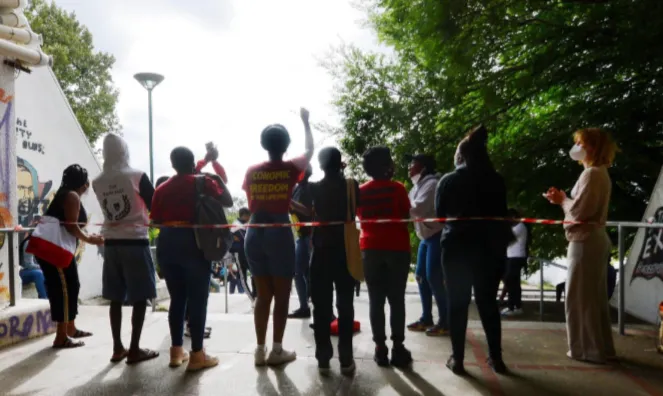
Three students from the University of Johannesburg who are facing a disciplinary hearing following a protest, lost their legal bid for the court to halt the hearing.
Image: FILE/ Armand Hough/African News Agency (ANA)
THERE is nothing suggesting that three University of Johannesburg student leaders will not receive a fair disciplinary hearing for their involvement in a protest over financial aid.
So said Gauteng High Court Judge Stuart Wilson in turning down their bid to halt the disciplinary process. They are accused of being engaged in disruptive protests contrary to the university’s code of student conduct. They allegedly partook in a sit-in at the university’s student finance office.
The university alleges that a group of students, led by the applicants, entered and occupied the student finance office, banged on doors, attempted to force their way into offices and refused to leave when told to do so.
The university’s case at the disciplinary inquiry is that the applicants’ conduct was disruptive enough to contravene its code of student conduct.
The students, on the other hand, said that they did no more than lead a delegation of students who, while “visibly agitated,” were never actually in occupation of the student finance office. They said they sought no more than an engagement with the university administration about the fact that their government financial aid had been withdrawn for no reason.
Judge Wilson started off his judgment by commenting that most South African university students have a great deal to worry about. At the top of the list are crushing familial and social expectations, academic pressure and scarce funding, he noted.
“It does not surprise me that, caught in these riptides, students sometimes engage in disruptive protest against what they perceive to be thoughtless and inefficient university authorities”.
Judge Wilson, however, said while the right to protest at universities is protected, the institutions still have the right to enforce rules if disruption threatens order.
The judge added that some degree of disruption is inherent in any protest. Picketers interfere with access to the property they picket.
Demonstrators may be noisy, obstructive and sometimes aggressive, but they must be tolerated so long as they remain peaceful. He noted that sit-ins, occupations and the public formation of other temporary communities of dissent, such as encampments on or near public or private property, are all time-honoured forms of protest.
"Depending on the circumstances, they may all find protection under the constitutional entrenchment of the right to peacefully assemble, demonstrate, picket, and petition in section 17 of the Constitution, even if they disrupt the activities of others,” Judge Wilson commented.
Judge Wilson said it is not his function to adjudicate that dispute. “The question before me is whether the applicants’ suspension and the institution of disciplinary proceedings against them was so grossly unfair and unlawful as to justify my interference with those proceedings".
In the statements presented to the registrar, the applicants had led a large group of “agitated” students in an attempt to force their way into the student finance office. Administrators at the finance office locked themselves in their offices, obviously in fear for their safety. The police were called to the scene.
“This, it seems to me, is more than enough material on which to form the reasonable belief that the applicants pose a threat to the orderly academic process,” the judge said.
But he added that all these allegations will be ventilated during the disciplinary hearings and it is not for the court to decide who is right or wrong.
Cape Times